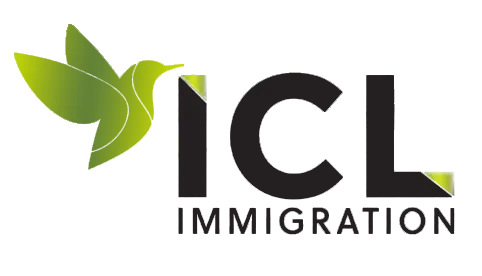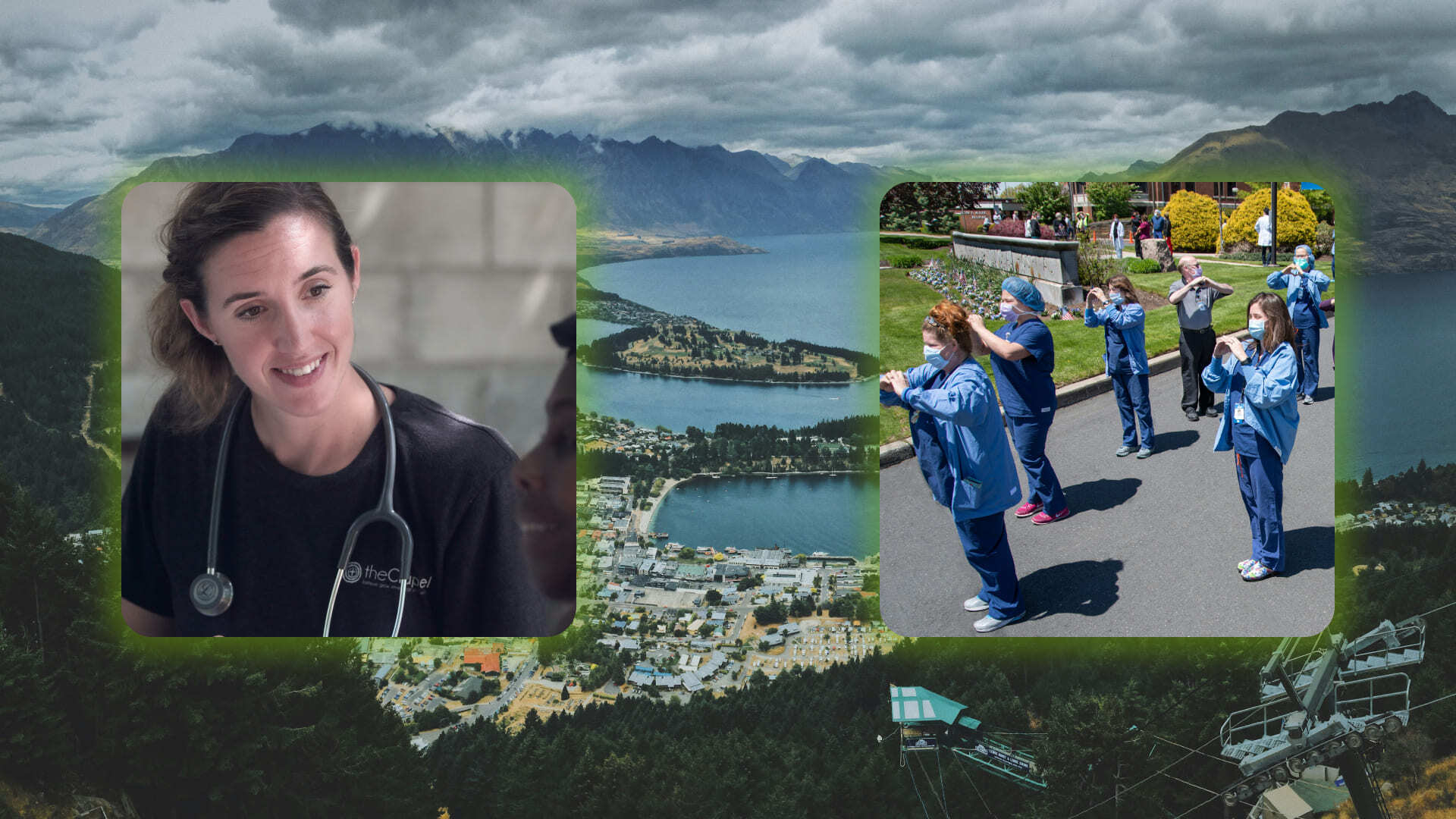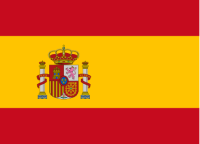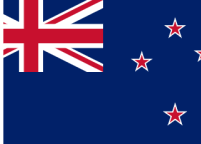- Nursing courses in NZ
- Eligibility for registration
- International qualified nurses (IQNS) in New Zealand
- Understanding the NZ nursing council – Role and functions of the New Zealand nursing council
- Earning potential for nursing graduates
- Types of visas available for international nursing students
- Post-Graduation: Transition to Resident Visa
- Success stories and Case studies
- FAQs
1. Nursing Courses in NZ
 New Zealand provides various nursing programs for multiple educational and expertise levels, from entry-level to advanced. These programs aim to give students the essential knowledge, skills, and credentials required to excel in the nursing field.
New Zealand provides various nursing programs for multiple educational and expertise levels, from entry-level to advanced. These programs aim to give students the essential knowledge, skills, and credentials required to excel in the nursing field.- Undergraduate Programs:
- Bachelor of Nursing: This is the primary pathway to becoming a Registered Nurse (RN) in New Zealand. Typically, a three-year program combines theoretical studies with practical experience in healthcare settings.
- As of 2024, over 20 institutions in New Zealand offer accredited Bachelor of Nursing programs.
- Enrolled Nurse Programs:
- Diploma in Enrolled Nursing: A Level 5 NZQA diploma, usually a two-year course, designed for those aiming to become Enrolled Nurses (ENs).
- Industry Demand: Enrolled Nurses are in high demand, particularly in aged care and community health settings.
- Postgraduate and Advanced Studies:
- Postgraduate Diplomas and Certificates: These are for RNs wishing to specialize in mental health, surgical nursing, or leadership roles.
- Master of Nursing: Aimed at nurses seeking advanced clinical or leadership positions. It can lead to becoming a Nurse Practitioner.
- PhD in Nursing: Focused on research and academia, contributing to developing nursing knowledge and practices.
- Approximately 10% of registered nurses in New Zealand are engaged in postgraduate studies.
| Scope | Number |
| Nurse Practitioner | 705 |
| Registered Nurse | 66,505 |
| Enrolled Nurse | 2,411 |
| Total | 69,621 |
| Aspect | Enrolled Nurse (EN) | Registered Nurse (RN) | Nurse Practitioner (NP) |
| Education Level | Diploma in Enrolled Nursing, typically a Level 5 NZQA diploma. | Bachelor’s degree in Nursing or equivalent, leading to registration as a nurse. | A Master’s degree in Nursing or a similar discipline, coupled with comprehensive clinical training. |
| Scope of Practice | Works under the direction and delegation of a Registered Nurse or Nurse Practitioner. | Possesses an extensive range of practice capabilities and can operate autonomously or in partnership with other healthcare experts. | It has the broadest scope of practice, including diagnosing and managing patient care and prescribing medications. |
| Responsibilities | We provide basic nursing care, monitor patient conditions, and assist with daily living activities. | Comprehensive assessments, planning and implementation of care, education and support for patients, leadership roles. | Advanced patient assessments, management of complex health conditions, authority to prescribe medicines. |
| Registration | Must hold a current Annual Practicing Certificate (APC) and be registered with the Nursing Council. | Necessary to have registration with the New Zealand Nursing Council and possess an active Annual Practicing Certificate. | In addition to RN registration, NPs must be certified as nurse practitioners and hold a current APC. |
| Career Progression | They can advance to registered nurse through further education and training. | They may pursue specialized areas of practice, advanced roles, or further education to become a nurse practitioner. | Senior, specialized role with healthcare leadership, research, and education opportunities. |
2.Eligibility for registration
 In New Zealand, the eligibility criteria for nurses to apply for registration are set by the Nursing Council of New Zealand. These criteria ensure that all nurses practising in the country meet the required standards of competence and professionalism. Here are the essential eligibility requirements:
In New Zealand, the eligibility criteria for nurses to apply for registration are set by the Nursing Council of New Zealand. These criteria ensure that all nurses practising in the country meet the required standards of competence and professionalism. Here are the essential eligibility requirements:- Educational Qualifications:
- For New Zealand Graduates: Completing a Nursing Council-approved nursing program, such as a Bachelor of Nursing for Registered Nurses (RNs) or a Diploma in Enrolled Nursing for Enrolled Nurses (ENs).
- For Internationally Qualified Nurses (IQNs): An overseas nursing qualification comparable to New Zealand’s nursing qualifications. IQNs may also be required to complete a Competence Assessment Programme (CAP) to demonstrate their competence to practice in New Zealand.
- Competence to Practice:
- Applicants must demonstrate the competencies for their scope of practice as set out by the Nursing Council. This includes clinical skills, professional judgment, and knowledge of the New Zealand healthcare context.
- Fitness to Practice:
- Applicants must maintain robust physical and mental well-being for nursing, guaranteeing their ability to perform nursing responsibilities competently while upholding public safety.
- English Language Proficiency:
- For applicants whose first language is not English or did not undertake their nursing education in English, evidence of English language proficiency is required. This is typically demonstrated through an approved English language test (like IELTS or OET).
- Good Character and Professional Conduct:
- Applicants must provide declarations and evidence related to criminal convictions, professional conduct issues, or any health conditions affecting their ability to practice safely and effectively.
- Legal Requirements:
- Applicants must have the legal right to work in New Zealand, which usually means holding a valid work visa or residency status.
- Continuing Professional Development (CPD):
- For existing practitioners, evidence of ongoing professional development and maintenance of clinical competence by the Nursing Council’s requirements.
- Annual Practising Certificate (APC):
- All nurses must apply for and hold a current APC to practice each year legally. The APC application process includes declarations about fitness to practice, professional development activities, and hours of practice completed.
- Professional Indemnity Insurance:
- Although it’s not compulsory for registration, it’s highly recommended that nurses obtain professional indemnity insurance.
3. International qualified nurses (IQNs) in New Zealand
 Nurses who were educated outside New Zealand and wish to join the Register must meet several criteria, including language, education, fitness, registration, and experience requirements. Many must also complete a competence assessment programme (CAP) before registration to assure the Nursing Council that they can practise safely.There has been a significant increase in IQNs applying for and being accepted into the Register in New Zealand in the last five years. There were 2,294 IQNs admitted to the Register in 2018–2019, which grew to 3,000 plus in 2021–2022, and in the past 12 months, that expanded to 6,079. IQNs now make up 36% of all nurses with annual practising certificates in Aotearoa.In 2022–2023, the Council received 9,675 applications from IQNs. Over the year, 5,409 applicants completed the entire process, including a competence assessment programme where required, and gained registration, while 10 applications were declined. The remainder were at various stages of the application process on 31 March 2023, including applications awaiting documentation or where the person concerned was completing a CAP. Some nurses added to the Register in 2022–2023 had applied before that period.Most new IQNs were initially educated in India or the Philippines, followed by Singapore, the United Kingdom, and Australia.Table 2: Internationally qualified nurses registered by country of qualification 2018–2023
Nurses who were educated outside New Zealand and wish to join the Register must meet several criteria, including language, education, fitness, registration, and experience requirements. Many must also complete a competence assessment programme (CAP) before registration to assure the Nursing Council that they can practise safely.There has been a significant increase in IQNs applying for and being accepted into the Register in New Zealand in the last five years. There were 2,294 IQNs admitted to the Register in 2018–2019, which grew to 3,000 plus in 2021–2022, and in the past 12 months, that expanded to 6,079. IQNs now make up 36% of all nurses with annual practising certificates in Aotearoa.In 2022–2023, the Council received 9,675 applications from IQNs. Over the year, 5,409 applicants completed the entire process, including a competence assessment programme where required, and gained registration, while 10 applications were declined. The remainder were at various stages of the application process on 31 March 2023, including applications awaiting documentation or where the person concerned was completing a CAP. Some nurses added to the Register in 2022–2023 had applied before that period.Most new IQNs were initially educated in India or the Philippines, followed by Singapore, the United Kingdom, and Australia.Table 2: Internationally qualified nurses registered by country of qualification 2018–2023| Country | 2018-2019 | 2019-2020 | 2020-2021 | 2021-2022 | 2022-2023 |
| Australia | 178 | 194 | 138 | 155 | 150 |
| Canada | 31 | 32 | 15 | 23 | 33 |
| India | 675 | 923 | 784 | 1,235 | 3,641 |
| Ireland | 26 | 29 | 11 | 17 | 19 |
| Philippines | 985 | 1,108 | 630 | 1,084 | 1,450 |
| Singapore | 17 | 20 | 11 | 43 | 187 |
| South Africa | 29 | 37 | 24 | 32 | 31 |
| United Kingdom | 234 | 266 | 112 | 186 | 178 |
| United States | 55 | 53 | 56 | 77 | 80 |
| Other | 64 | 106 | 70 | 161 | 310 |
| Totals | 2,294 | 2,768 | 1,851 | 3,013 | 6,079 |

4. Understanding the NZ Nursing Council – Role and Functions of the New Zealand Nursing Council
 The New Zealand Nursing Council (NCNZ) is the regulatory authority responsible for the nursing profession in New Zealand. Its primary roles and functions include:
The New Zealand Nursing Council (NCNZ) is the regulatory authority responsible for the nursing profession in New Zealand. Its primary roles and functions include:1. Regulation and Standard Setting
- Setting Standards: NCNZ establishes nursing education, training, and practice standards to ensure high-quality care.
- Accreditation: It accredits nursing programs across New Zealand, ensuring they meet rigorous educational standards.
2. Registration and Practicing Certificates
- Registration of Nurses: NCNZ manages the registration of nurses, which is a legal requirement to practice in New Zealand.
- Issuance of Practicing Certificates: It issues annual practising certificates to ensure ongoing competency.
3. Competence and Fitness to Practice
- Competence Assessments: Regular assessments ensure nurses maintain the necessary skills and knowledge.
- Managing Professional Conduct: NCNZ handles complaints about nursing practice and can take action if a nurse’s conduct or competence is found wanting.
4. Public Safety and Advocacy
- Ensuring Public Safety: By regulating the profession, NCNZ ensures that nursing care provided to the public is safe and effective.
- Representation and Policy Formulation: It also champions the nursing field and aids in the creation of health policies.
Importance of Registration with the NZ Nursing Council for Nursing Professionals
Registration with the NCNZ is critical for nursing professionals for several reasons:- Mandatory Legal Compliance: In New Zealand, it’s a legal necessity to be registered to practice nursing, and non-compliance can lead to legal consequences.
- Validation of Professionalism: Being registered is a mark of professional recognition and credibility, indicating adherence to the nursing standards set in New Zealand.
- Career Opportunities: Many employers require NCNZ registration, and it’s often a prerequisite for specialized roles or further professional development.
5. Earning Potential for Nursing Graduates

- Starting Salaries: Newly graduated nurses in New Zealand typically start with salaries slightly above the minimum wage. The beginning salary for a registered nurse is generally around NZD 54,000 to NZD 65,000 per year.
- Experience and Specialization: With experience and specialisation, nurses can see significant increases in their earnings. Experienced nurses or those with specialised ICU, surgical nursing, or midwifery skills can earn considerably more.
- Public vs. Private Sector: The public sector, which includes hospitals and community health services, often has standardised pay scales. In contrast, the private sector can offer different salary packages, sometimes higher, depending on the role and institution.
Factors Influencing Salary
- Level of Education: Advanced degrees or specialized certifications can lead to higher-paying positions.
- Experience: More experienced nurses generally command higher salaries.
- Type of Employment: Full-time, part-time, or contract work can affect earnings.
- Location: Salaries vary by region, with urban centres typically offering higher wages than rural areas.
- Specialized Skills: Nurses with skills in high-demand specialties generally earn more.
6 . Types of Visas Available for International Nursing Students
 For international students planning to study nursing in New Zealand, there are specific visa types that are applicable:
For international students planning to study nursing in New Zealand, there are specific visa types that are applicable:- Primary Option: This is the most common visa for international students. It allows you to study full-time in New Zealand for a set period.
- Work Rights: Typically, it permits up to 20 hours of work per week during the academic year and full-time during scheduled holidays.
Pathway Student Visa
- For Sequential Studies: Perfect for students who intend to pursue a series of courses in New Zealand, such as advancing from a diploma program to a degree course.
- Duration: It can last up to 5 years, covering multiple courses.
Guardian of a Student Visitor Visa
- For Parents/Guardians: If a student is young and requires a guardian, this visa allows a parent or legal guardian to accompany them.

7. Post-Graduation: Transition to Resident Visa
After completing their nursing education, graduates have several pathways to transition to a resident visa in New Zealand:- Ideal for nurses with skills contributing to New Zealand’s economic growth.
- Points-based assessment includes age, experience, qualifications, and skilled employment offer.
- Registered Nurses are on the Long Term Skill Shortage List (LTSSL), potentially offering additional points.
- Work to Residence Visa:
- The main pathways are the Accredited Employer Work Visa and LTSSL Work Visa.
- Requires a job offer from an accredited employer or a job on the LTSSL.
- Residency is possible after two years of employment.
- Essential Skills Work Visa:
- For those with a full-time job offer and necessary qualifications.
- It can be issued for up to five years based on job skill level.
- Care Workforce Work to Residence Visa:
- Designed explicitly for Nurses: Targeted at healthcare workers, including nurses, in aged care facilities or roles supporting disabled individuals.
- Eligibility: Requires a job offer in a relevant caregiving role and meets the specific requirements for this visa category.
- Pathway to Residency: Similar to other work-to-residence visas, it provides a direct path to apply for residency after meeting specific work and residence duration criteria.
- Importance: This visa is particularly significant given the growing demand for care workers in the healthcare sector.
- Registration with the Nursing Council of NZ:
- Mandatory for working as a nurse.
- Involves competency assessment and meeting registration standards.
8. Success Stories and Case Studies
International Students’ Success in NZ NursingCase Study 1: Maria’s Journey from the Philippines to NZ
- Background: Maria, a registered nurse from the Philippines, moved to New Zealand to pursue further studies in nursing.
- Educational Path: She enrolled in a Competence Assessment Program (CAP) at a leading university in New Zealand.
- Registration Success: Post-CAP, Maria successfully registered with the NZ Nursing Council.
- Job Acquisition: She secured a position as a Registered Nurse in a prominent Auckland hospital.
- Growth: Maria has since progressed to a senior nursing role and is currently pursuing a Master’s degree in Nursing.
Case Study 2: Amit’s Transition from India to NZ
- Background: Amit, with a nursing degree from India, aimed to practice nursing in New Zealand.
- English Proficiency: He cleared his IELTS with an impressive score, meeting the language requirements.
- NCNZ Registration: After completing the CAP, Amit registered with the NCNZ.
- Employment: He started as an entry-level nurse in a Christchurch healthcare facility and now works in a specialized cardiac care unit.
- Professional Development: Amit actively participates in professional development programs and workshops.
9. FAQs
Studying Nursing in NZ
Q: What are the requirements for international students to study nursing in New Zealand?
A: Requirements include a recognized secondary education, English language proficiency (IELTS or OET), and meeting the specific criteria of the chosen nursing program.Registration with the NZ Nursing Council
Q: How do I register as an internationally qualified nurse with the NZ Nursing Council?
A: The process involves assessing your qualifications for equivalency, completing a Competence Assessment Program if required, demonstrating English language proficiency, and applying for registration with all necessary documentation.Work Opportunities
Q: What are the job prospects for international nursing graduates in New Zealand?
A: Graduates have good prospects in both public and private healthcare sectors. New Zealand’s ageing population and the global demand for healthcare services mean qualified nurses are in high demand.Q: Can I work in New Zealand while studying nursing?
A: Student visas typically allow for up to 20 hours of work per week during the academic year and full-time during holidays.Transition to Resident Visa
Q: What are my options for residency in New Zealand after completing my nursing studies?
A: Options include the Post-study Work Visa, Skilled Migrant Category Resident Visa, or Work to Residence Visa, depending on your circumstances and job offers.These FAQs and success stories offer a glimpse into the journey and potential outcomes for international nursing students in New Zealand. With the proper preparation and support, a rewarding nursing career in New Zealand is a tangible goal.How can Immigration Consultants(ICL Immigration) can help
Based in Auckland, NZ for 20 years and in partnership with over 20 institutes, ICL Immigration simplifies your journey to become a nurse in New Zealand. Our services include:- Admission and University Selection: Tailored matching to the best nursing programs, guiding you through university applications, and meeting deadlines.
- Student Visa Facilitation: Comprehensive assistance in visa application processes, ensuring compliance, with ongoing communication with Immigration New Zealand.
- Post-Arrival and Settlement Support: Pre-departure briefings on New Zealand’s culture, aid in accommodation, and local orientation upon arrival.
- Resident Visa and Pathway to Residency: Expert guidance in transitioning to a resident visa post-study and support in the permanent residency application process.
Conclusion
New Zealand presents a landscape rich with opportunities for nursing students, both domestic and international. The country’s healthcare system is robust and evolving. It offers a nurturing environment for nurses to learn, grow, and excel in their careers. New Zealand promises high-quality education for international students and a clear pathway to practice nursing professionally within its shores.Our consultancy plays a pivotal role in turning these opportunities into realities. We offer end-to-end support, from choosing the right nursing program, navigating the visa application process, assisting in registration with the New Zealand Nursing Council, and even transitioning to resident visas post-graduation. We aim to provide a seamless and stress-free experience for nursing students aspiring to study and work in New Zealand.Reference –- Nursing Council of Newzealand – https://www.nursingcouncil.org.nz/
- Immigration NZ – https://www.immigration.govt.nz/














